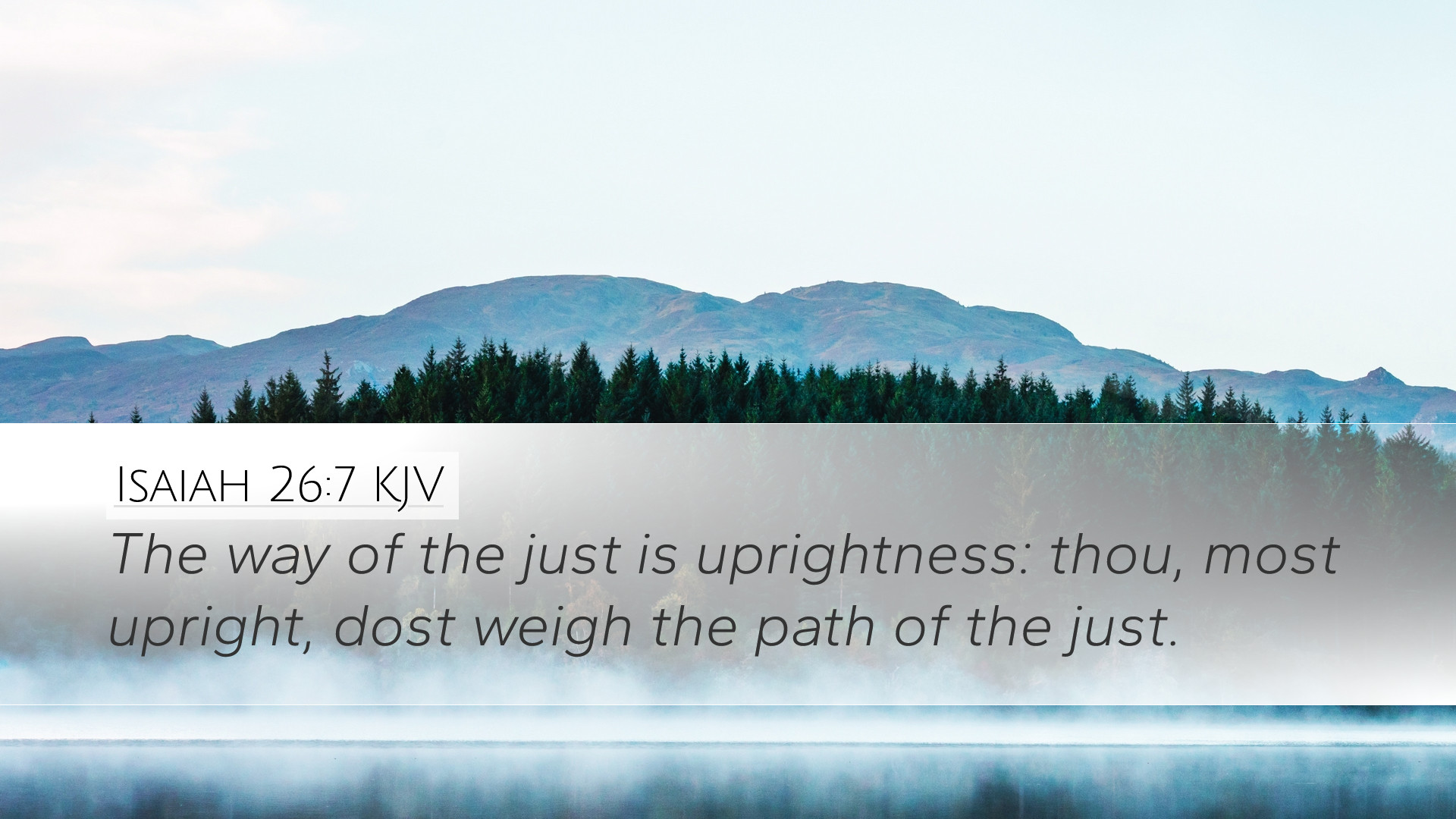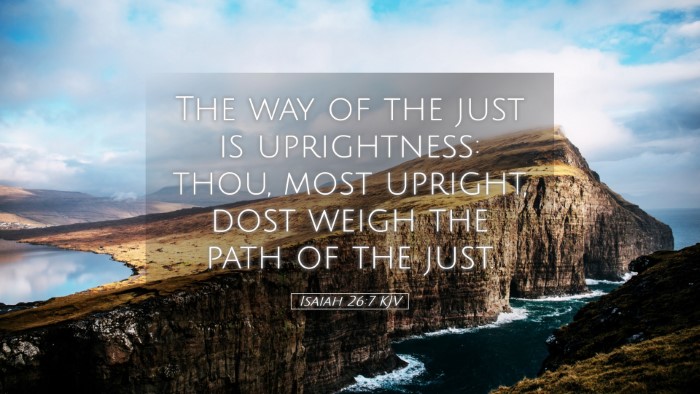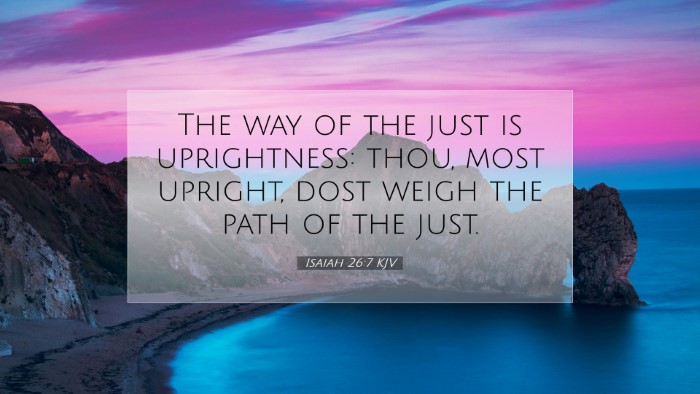Commentary on Isaiah 26:7
Verse: "The way of the just is uprightness: thou, most upright, dost weigh the path of the just."
Introduction
The verse Isaiah 26:7 presents a profound observation about the nature of righteousness and the divine guidance provided to those who pursue a just life. This commentary amalgamates insights from several public domain sources, including Matthew Henry, Albert Barnes, and Adam Clarke, to explore the implications of this verse for contemporary readers, including pastors, students, theologians, and Bible scholars alike.
Contextual Background
Isaiah's message to Judah during turbulent times provides context to this verse. The nation faced impending judgment due to its disobedience. Yet, amidst these dire circumstances, the prophet offers words of hope regarding the ultimate triumph of God's justice and the path laid out for the righteous.
- Judgment and Hope: The surrounding passages set forth a stark contrast between the fate of the wicked and the promise for the just.
- The Role of the Just: Isaiah emphasizes those who walk according to God’s precepts, providing a spiritual roadmap for believers.
Exegesis of Key Phrases
"The way of the just is uprightness" indicates not only the moral integrity of the righteous but also the divine alignment with God’s will. This notion is elaborated by:
- Matthew Henry: He notes that the "way of the just" signifies the path created by God for the righteous, which is characterized by truth and equity.
- Adam Clarke: He emphasizes the steadfastness and sincerity of the just man's heart, indicating that their way reflects a life lived in accordance with God’s statutes.
The Divine Weighing
The latter part of the verse, "thou, most upright, dost weigh the path of the just," conveys the assurance that the Lord actively evaluates the lives of His people. Here, the language suggests:
- Divine Justice: Albert Barnes elaborates that God’s assessments are marked by perfect justice and holiness, ensuring that each step of the righteous is recognized and guided.
- Moral Order: The imagery of weighing illustrates the precision and balance of divine justice. There is an assurance that God is intimately aware of the journey taken by those who strive for righteousness.
Theological Implications
The implications of Isaiah 26:7 extend deeply into Christian theology, particularly concerning:
- Assurance of Salvation: The righteousness of the believer is cemented through Christ, reinforcing the idea that their path is known and guided by God.
- The Nature of Righteousness: As discussed by various commentators, this passage encourages believers to pursue a life resembling the just, underscoring that righteousness is not merely a theoretical concept but a practical, lived reality.
- Hope amid Difficulty: In facing life’s trials, believers are reminded of God’s sovereign oversight, which strengthens their resolve to remain just in an unjust world.
Application for Today’s Believers
Isaiah 26:7 is not merely historical but serves as a guiding principle for Christians today. The following points for application can be drawn:
- Foundation in Scripture: Engaging with biblical text to better understand the nature of uprightness will strengthen one’s faith and moral framework.
- Personal Reflection: Believers are encouraged to examine their paths—are they aligning with God’s expectations? This reflection can lead to spiritual growth.
- Community Implications: Churches should cultivate environments where just living is encouraged and exemplified, fostering a community reflective of righteousness.
Conclusion
In sum, Isaiah 26:7 encapsulates vital truths about God’s character and the experience of His people. With insights drawn from Matthew Henry, Albert Barnes, and Adam Clarke, it becomes evident that the path of the just reflects not only a moral journey but also one under the careful consideration of divine justice. As we seek to embody the characteristics of the just, we are provided with guidance, hope, and assurance that God is weighing our steps with love and integrity.


